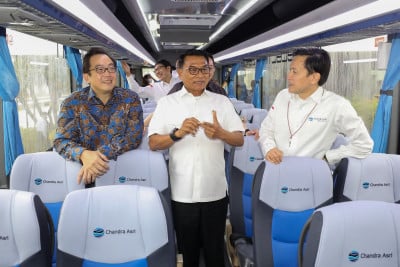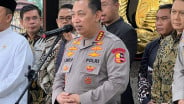Capital flight overshadows Asia, talks at WEF reveal
JAKARTA: Talks during the World Economic Forum yesterday hinted several challenges that are still overshadowing the world economic growth, particularly for East Asian countries, which include inflationary pressure and the risk of capital flight.Economic
Cek Berita dan Artikel yang lain di Google News dan WA Channel
Penulis : Yusuf Waluyo Jati
Editor : Mursito
Topik

Dapatkan informasi komprehensif di Bisnis.com yang diolah secara mendalam untuk menavigasi bisnis Anda. Silakan login untuk menikmati artikel Bisnis Indonesia Premium.

1 hari yang lalu
Menerka Aksi TPIA Setelah IPO CDIA
Artikel Terkait
Berita Lainnya
Berita Terbaru

1 jam yang lalu
Ada Usulan Jemaah Haji Diberangkatkan Menggunakan Kapal Laut
Terpopuler
# Hot Topic
Rekomendasi Kami
Foto












